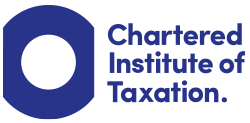We are often asked to advise on remuneration for a Director of a Limited Company. This is a complex area which can be different for everyone, but one area where clients need to be careful is how they take money out of the Company.
In practice the actual cash that they receive will be a mixture of Salary, Dividends, Expenses and money they have taken out because they need it! In order to keep legal it is important to account for all this money accurately. Some book keeping systems do this very well, for example Freeagent has specific actions for paying out of pocket expenses and dividends.
Whichever method you use for book keeping one of the easiest ways of keeping tabs on your personal money is to use a Directors Loan or Current account. Every time a salary payment or dividend is paid the money will go in to this “pot”. An expense paid personally by a Director will also increase the money in this “pot”.
The director can then take money out iof this “pot”. The problem is when the director takes more money than there is in the “pot” and the account becomes overdrawn. HMRC take a keen interest in this in 2 ways.
If the account is overdrawn 9 months after the year end there will be extra Corporation Tax due (S.455 Tax). This is at a rate of 25% and will be repaid as and when the money is paid back to the Company by the Director. If the overdrawn loan account is paid back between the end of the Company tax year and 9 months after there is no S455 tax due but we need to declare this on the Corporation Tax return. The point of this tax is that otherwise Directors could just take loans from their Company and never pay any income tax!
The other way HMRC take an interest is that if the loan figure goes over £10,000 then a Benefit in Kind will accrue to the Director unless interest is paid to the Company. The benefit in kind is calculated from the average value of the loan and the official interest rate. This would then be entered on the P11d and personal tax would be due from the Director and class 1A national insurance would be due from the Company.
This is a complex area and care needs to be taken. Preferably Directors would not overdraw their loan accounts. Declaration of legal dividends need to be considered and this will be addressed in a future blog post.




